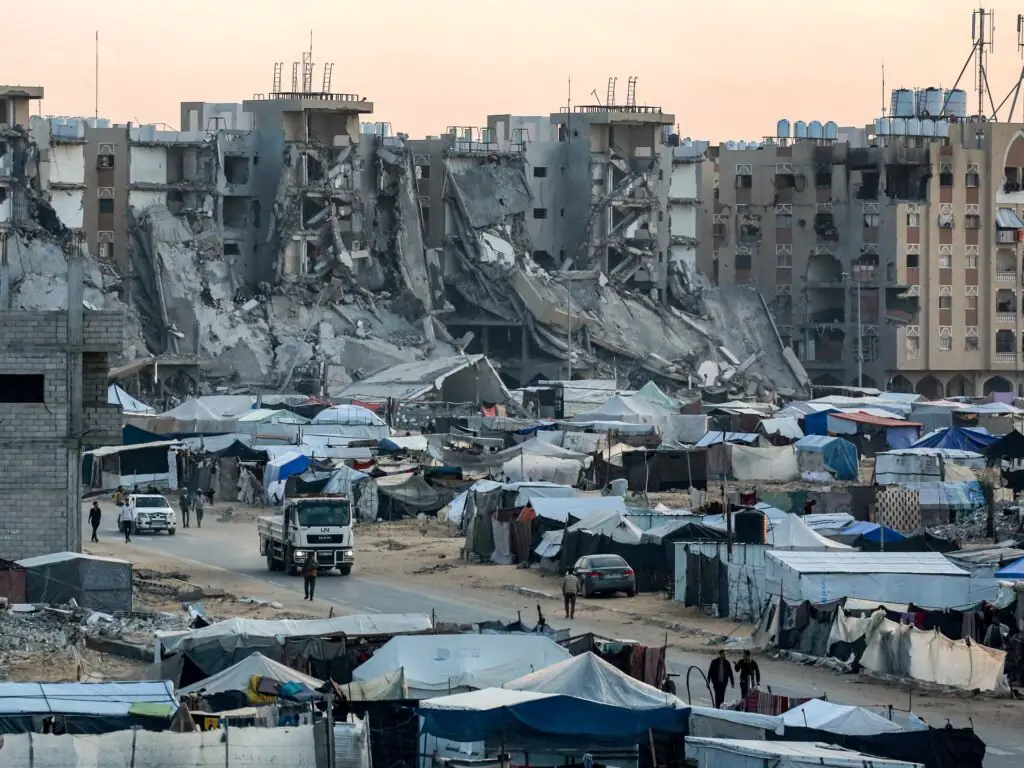An advocacy group has launched legal action in Argentina and Chile, calling on the countries to arrest an Israeli soldier on war crimes charges Gaza.
The cases announced Thursday in Argentina and Chile invoke both national and international legal obligations. They are part of broader efforts by the Belgium-based Hind Rajab Foundation to pressure countries around the world to achieve broader justice for abuses committed in the Palestinian enclave.
The cases target Israeli soldier Saar Hirshoren for what the Hind Rajab Foundation described as his role in the 749 Combat Engineering Battalion, whose chairman Dyab Abou Jahjah described as “systematically involved in the destruction of civilian infrastructure” in Gaza.
At the same time, the foundation filed a lawsuit against the entire battalion with the International Criminal Court (ICC) for “war crimes, crimes against humanity and genocide.”
Local prosecutors working with the group filed criminal charges in Argentina on December 24 and in Chile the next day, calling for Hirshoren’s arrest. The foundation said Hirshoren was initially in Argentina when the first case was filed before leaving for Chile.
Prosecutors cited “video evidence from Hirshoren’s Instagram account showing his active participation in the destruction of civilian infrastructure in Gaza” as well as “his role in the deliberate destruction of neighborhoods, cultural sites and vital facilities,” in violation of the represents international law.
It is not immediately clear whether Hirshoren has dual citizenship of a country other than Israel, and his recent whereabouts remain unknown, Abou Jahjah told Al Jazeera.
“I call on Argentina and Chile to live up to their responsibilities as democracies and states governed by the rule of law and to arrest Mr. Hirshoren,” he said.
Demand greater accountability
The latest legal action came from Amnesty International earlier this month completed that Israel committed genocide in Gaza. UN rights experts have made similar conclusions about the war, which began after a Hamas attack on southern Israel on October 7, 2023.
Since then, 45,399 Palestinians have been killed and 107,940 injured in Gaza in Israeli operations that have also destroyed much of Gaza’s infrastructure and created a deadly humanitarian crisis.
Hamas’ attack on Israel killed 1,139 people.
In November, the ICC issued an arrest warrant for Israeli Prime Minister Benjamin Netanyahu and former Defense Minister Yoav Gallant, citing “the war crime of starvation as a method of warfare; and the crimes against humanity such as murder, persecution and other inhumane acts.”
Israel has rejected the arrest warrants and repeatedly claimed that its actions in Gaza were in accordance with international law.
So did the ICC last month issued an arrest warrant for Hamas military commander Mohammed Deif for crimes against humanity and war crimes committed during the October 7 attack on Israel. Israel said Deif was killed in an attack in July.
But the Hind Rajab Foundation, named after the six-year-old killed when her family fled Gaza City earlier this year, and other advocacy groups have said responsibility should go beyond Israel’s leadership.
The foundation has taken legal action against Israeli soldiers who are citizens of, or temporarily residing in, Ecuador, the Netherlands, France and Cyprus, among others.
The group has regularly targeted Israeli soldiers who posted insults on social media. For example, in October, Hirshoren posted a video in which he remotely blew up seven buildings near the Mosab bin Omair Mosque in northern Nuseirat, according to an analysis of posts by Drop Site News.
Proponents argue that countries that are parties to international legal treaties – including the founding document of the ICC, the Rome Statute, and the Geneva Convention – have a responsibility to enforce international law.
In October, the group filed a complaint with the International Criminal Court naming 1,000 Israeli soldiers it accused of abuses, including 12 dual citizens from France, 12 from the United States, four from Canada, three from the United Kingdom and two from the Netherlands.
Abou Jahjah said his group hopes to address a “deficiency” at the nation-state level as the ICC takes long-delayed action.
It can be a long road. None of the countries where the group has taken action have sought recourse against the identified soldiers. Neither Chile nor Argentina have responded to the latest appeal.
Still, Abou Jahjah said he hopes the message will resonate.
“You cannot allow criminals to vacation in your country as if nothing had happened,” said Abou Jahjah.
“You cannot simply reduce your responsibility to the conventions you have signed,” he added, “and to the principles of justice that all these states have enshrined in their constitutions.”





